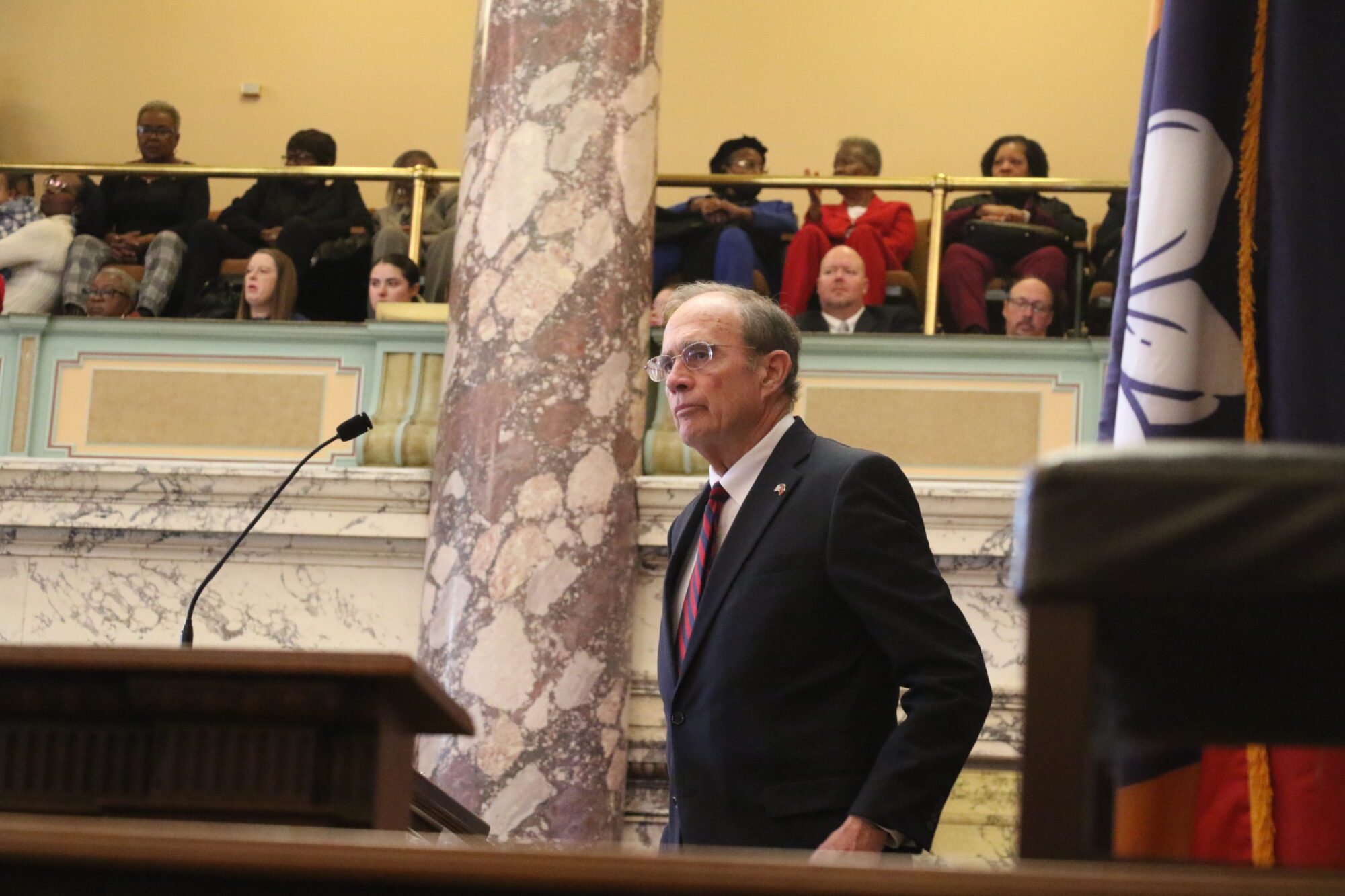
U.S. District Judge Henry Wingate smiles on Aug. 19, 2022, in Jackson, Miss. Wingate ruled Thursday, June 1, 2023, that the Mississippi chief justice cannot be a defendant in a lawsuit that challenges a state law dealing with appointed judges. (AP Photo/Rogelio V. Solis, File)
Federal Judge Henry Wingate has dismissed several motions related to the implementation of a court in the Capitol Complex Improvement District in Jackson created through HB 1020.
Just before the end of the year, federal Judge Henry Wingate found several motions “moot” in the case against the implementation of House Bill 1020.
The law, passed by the Mississippi Legislature in 2023, will establish a new temporary court within the Capitol Complex Improvement District (CCID) of Hinds County. It grants appointment authority for a judge in the court to the Chief Justice of the Mississippi Supreme Court as well as the power to appointment a prosecutor to the Attorney General.
Lawmakers in support of the bill argued that it will aid law enforcement in the prosecution of offenders and continue to relieve Hinds County’s backlog of cases.
RELATED: Federal judge: “Jackson has a crime cancer”
The new law has been in court since being signed into law by Governor Tate Reeves. The most recent attempt to stop or delay its implementation was filed by the Mississippi State Conference of the National Association for the Advancement of Colored People (NAACP). Judge Wingate heard arguments in court on December 19 and guaranteed a response before the new year.
Judge’s Orders
During the hearing on December 19, Judge Wingate addressed one issue at hand at the outset, that being the incorporation of Chief Justice Michael Randolph as a defendant in his professional capacity.
RELATED: HB 1020 back in federal court over looming creation of new court district in Mississippi’s capital city
After hearing from both sides, Wingate ordered that Randolph be dismissed from the suit for all purposes. Judge Wingate added that he was not persuaded to revoke judicial immunity for Chief Justice Randolph. Wingate said it has been confirmed through other courts as well as his previous opinion.
Wingate had already released an opinion in June of 2023 on the judicial immunity of Justice Randolph. However, plaintiffs chose to challenge the ruling again.
Two days after the December hearing, Wingate found multiple motions in the filing to be moot, including attempts to prevent the creation of the court, which is set for January of 2024.
This court, accordingly, hereby dissolves the Temporary Restraining Orders currently in place [Docket nos. 26 and 38] and dismisses as moot all judicial appointment claims and related matters brought by the Plaintiffs under H.B. 1020 §1, to wit: Plaintiffs’ motions for temporary restraining orders against the Chief Justice [Docket nos. 11 and 24]; Plaintiffs’ motion for a preliminary injunction regarding Section 1 of H.B. 1020 [Docket no. 40]; Plaintiffs’ motion for a temporary restraining order to restrain John/Jane Does 1-4 [Docket no. 82]; and Plaintiffs’ motion to Stay this court’s Order lifting the temporary restraining orders in place against the Chief Justice [Docket no. 100].
The following motions were dismissed:
- Motion for temporary restraining order
- Second motion for temporary restraining order
- Motion for preliminary Injunction re: Appointment of Judges
- Motion to Clarify June 1, 2023 order of Judicial Immunity.
- Motion for Certificate of Appealability
- Unopposed Motion for Leave to File Excess Pages
- Motion for Temporary Restraining order restraining John/Jane Doe
- Motion to Stay proceedings re: Forthcoming Order Lifting TRO against Defendant Randolph pending Appeal
All parties returned to court just days after Christmas when the plaintiffs filed an additional motion for a Temporary Restraining Order or Injunction Pending Appeal in response to the ruling on December 21.
Minutes from the hearing reflected a denial by the court for the plaintiffs’ motion.
The CCID Court is set to go into effect January 1, 2024.











